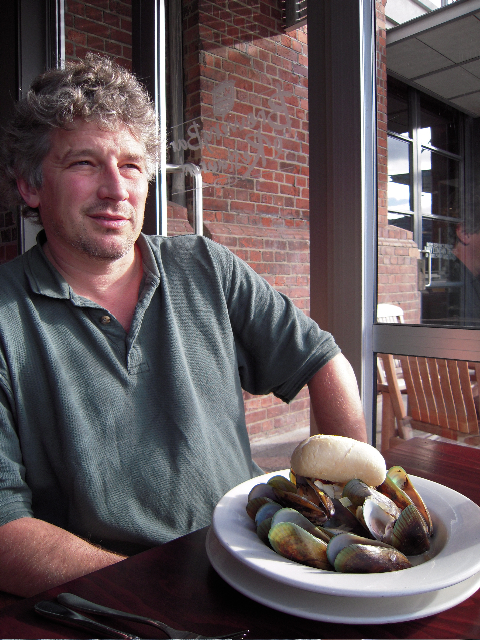A year ago Amy and I were sitting in a Wellington, New Zealand restaurant overlooking the harbor, pulling mussels from the shell (it was a holiday complete).
 Consumers in Belgium are just beginning to enjoy the annual harvest of so-called Belgica mussels. According to a report forwarded by our European safe food correspondent, Albert Amgar:
Consumers in Belgium are just beginning to enjoy the annual harvest of so-called Belgica mussels. According to a report forwarded by our European safe food correspondent, Albert Amgar:
Last year there was a lot of hubbub around the so-called presence of toxic substances in Belgica mussels. This toxin would provoke Diarrheic Shellfish Poisoning, characterized by gastric and intestinal problems, diarrhea, nausea, vomiting and intestinal cramps. Counter analyses could not confirm the presence of this toxin.
The mussels cultivated in Belgian waters underwent bimonthly bacteriological testing conducted by the Federal Agency for Food Safety. Weekly tests were also taken in order to detect the possible presence of toxins in mussels and the presence of toxin-bearing algae in the water where the mussels are raised. French authorities are responsible for testing the mussels raised in France.
Belgica was the name given to a Roman province encompassing parts of modern Belgium, France, the Netherlands, Germany and Luxembourg. These Belgica mussels are 20 per cent from Belgian waters and 80 per cent from French waters of the North Sea. Apparently, the less-fleshier Zeeland mussels, from the Zeeland waters of the North Sea – Zeeland is a southern province of The Netherlands – compete with Belgica mussels for the food dollars of Belgian consumers (apparently American and Canadian country-of-origin labels aren’t the only confusing – and largely meaningless – labels out there).
 To continue on with the wiki-ized history, the name New Zealand originated with Dutch cartographers – Dutch explorers being the first Europeans to arrive — who called the islands Nova Zeelandia, after the Dutch province of Zeeland. British explorer James Cook subsequently anglicised the name to New Zealand.
To continue on with the wiki-ized history, the name New Zealand originated with Dutch cartographers – Dutch explorers being the first Europeans to arrive — who called the islands Nova Zeelandia, after the Dutch province of Zeeland. British explorer James Cook subsequently anglicised the name to New Zealand.
Katie, enjoy some NZ mussels; cause as the poster says, New Zealand: Better than Old Zealand.
